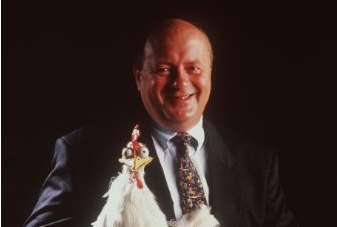Man who smashed ‘advertising’s cartel’ warns ‘Find who’s stealing from you and kill ’em off’
Bob Miller, the man who 20 years ago took the power of Packer and Murdoch head on and smashed the media and advertising “cartel”, has warned modern day advertisers need to work harder to pursue value with major questions surrounding the transparency or emerging platforms.
The former head of marketing at Toyota and chairman of the AANA, used the anniversary of the Federal Court decision scrapping the “illegal” agreement between the media owners and advertising agencies that guaranteed agencies a 10% cut of ad spend was a lesson for modern marketers about fighting for their rights.
Miller’s marketing legacy includes introducing “Oh what a feeling!” and the Toyota “Jump”.



sounds like a lovely bloke.
“the Federal Court decision scrapping the “illegal” agreement between the media owners and advertising agencies that guaranteed agencies a 10% cut of ad spend”
Ummmm yeah that “agreement” definitely doesn’t still happen* haha
Glad there are such strict laws in place to stop such illegal practices! 😉
*Nose extends whilst commenting
I could easily name an agency that still does this …
not all stuck back in the 90’s
I love reading people’s opinions on social/digital media platforms when they have never deployed a Facebook ad in their life. Please……continue, I’m intrigued and tell me how you came to the conclusion they are “thieves.”
Because the accountability when it comes to external auditing of their numbers? That pretty much ends the conversation. But there is also the fact they count reach in a completely inaccurate metric (less than a second counts for reach) and a lot of the data that would expose them being ineffective they wont release. Digital works but not as much as it is lead on
How do they measure reach for TV & Radio? Isn’t it based on historical data so how do you know you will actually reach the people you are saying you will?
Historical date used in both TV and Radio is monitored continually and shows patterns of behaviour that tends to be pretty damned accurate. in lieu of anything else it serves its purpose.
His language is not Self-aggrandizing in the slightest ‘String them up from the lampost’ ‘Bad things will happen’. I think he actually believes he is taking on the Ndrangheta or something similar.
The intelligent reader will realise that Miller’s comments about stringing people up were metaphorical. Judging from the comments it’s apparent there aren’t too many of them.